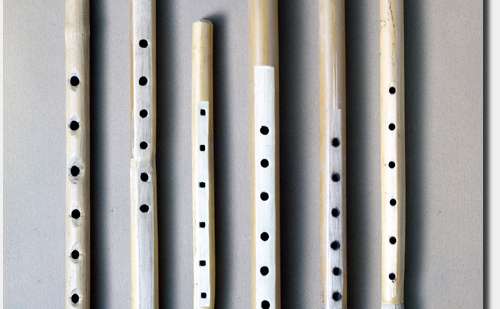Tsafari

In the local dialect-vernacular of the Peloponnese and especially of Laconia and Arcadia, the "tsafari" is a musical instrument known to all of us, the flute. In Greece, we find many names for it, such as "frauro" (Pelion), “varvaga" (Karditsa, Trikala), “kavali" (Macedonia, Thrace), pistoulka" (Serres) etc.
The "tsafari" was the shepherd's pipe, made of dry, lump-free reed. Shepherds played it privately at home or outside in the places where they grazed their livestock.
It is likely that "tsafari" is related to the Arabic "tsafar", meaning "chilling", and the Bulgarian "tsafara", meaning "whistling". The root of the word is ancient Greek and comes from "siphon", which means "pipe" or "reed" ("siphon-sifarion, sifari, tsa-fari". (ARESKOUSA, VOLUME I, G.N. Michaletos, "The Vatica language).
Finally, the verb 'tsafarizo' is of interest, which is used for someone who scratches something and makes a noise or plays a musical instrument absentmindedly. The word comes from "tsafari", which produces a sharp sound.



